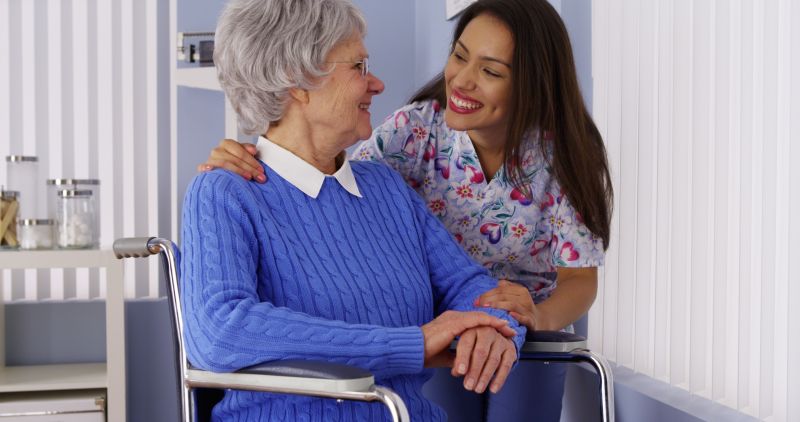Building Trust: A Guide to Establishing a Meaningful Relationship with an Elderly Patient
iSavta | 07.08.2023

Establishing trust is paramount when it comes to providing care for elderly patients. A strong, trusting relationship not only improves the overall quality of care but also contributes to the emotional well-being of the patient. Building trust requires patience, empathy, and effective communication skills. In this article, we will discuss practical strategies to develop a trusting relationship with an elderly patient.
Demonstrate Empathy and Respect
Empathy forms the foundation of trust. Show genuine concern for the elderly patient's feelings, needs, and preferences. Take the time to listen actively, allowing them to express their thoughts and emotions. Respect their opinions and decisions, even if they differ from your own. Remember, they have a lifetime of experience that should be valued.
Establish Open and Honest Communication
Effective communication is vital for building trust. Speak clearly, using simple language and a warm, friendly tone. Be patient and allow ample time for the patient to express themselves. Actively listen to their concerns and respond with empathy. Encourage questions and provide honest and straightforward answers. Transparency and clear communication can alleviate anxiety and build a strong foundation of trust.
Build Rapport and Consistency
Consistency is crucial in building trust with elderly patients. Strive to be reliable and consistent in your actions, words, and behaviors. Be punctual for appointments and follow through on commitments. Establishing a routine can help foster a sense of stability and security. Additionally, taking the time to build rapport by engaging in casual conversations about their interests, hobbies, and memories can create a more personal connection.
Involve Family and Loved Ones
In many cases, family members play a significant role in the lives of elderly patients. Involving them in the care process can strengthen the bond of trust. Encourage family members to participate in discussions, decision-making, and care planning. Regularly update them on the patient's progress and involve them in the development of care goals. By fostering a collaborative approach, you show that you value the input of those who are important to the patient.
Be Patient and Understanding
Elderly patients may face physical and cognitive challenges that require patience and understanding. Be mindful of their limitations and adjust your approach accordingly. Allow extra time for tasks and procedures, and be prepared to repeat information if necessary. Avoid rushing or showing signs of frustration, as it can erode the trust that has been established. Your patience and understanding will foster a sense of security and promote a positive relationship.
Respect Privacy and Dignity
Respecting the privacy and dignity of elderly patients is essential for building trust. Always knock before entering their room and ensure their modesty is maintained during personal care activities. Protect their confidentiality by following strict guidelines on sharing personal information. By demonstrating respect for their boundaries and dignity, you establish an environment where they feel safe and valued.
Follow through on Promises
Keeping your promises is crucial in earning the trust of elderly patients. If you commit to a certain course of action, follow through with it. Whether it's arranging a follow-up appointment, delivering medication, or addressing a concern, reliable follow-up helps build credibility and reassures the patient that their needs are being prioritized.
Building a trusting relationship with an elderly patient is a multi-faceted process that requires empathy, effective communication, and consistency. By demonstrating respect, active listening, and understanding, healthcare providers can create an environment where elderly patients feel safe and valued. Engaging family members, maintaining privacy, and keeping promises are additional ways to strengthen the bond of trust. Ultimately, the establishment of trust is a vital step towards providing optimal care and enhancing the overall well-being of our elderly patients.











